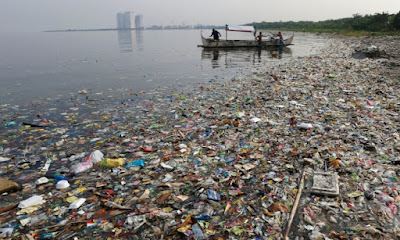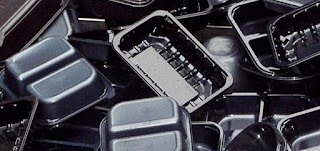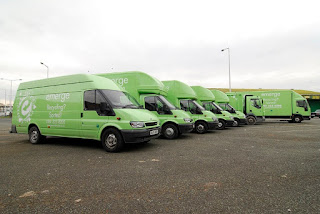Why it’s Time to Talk About our Plastic Use
With
everyday items cluttering up our planet, it’s starting to get a bit too close
for comfort. Now that plastic is killing the fish in our oceans, perhaps it’s time
to think more about what we use and how we manage it responsibly...
 |
| Image credit: Pixabay |
Litter has long been the
blight of our countryside as well as in urban areas, and much of it is plastic
with no sign of abating. Our love affair with non-biodegradable materials is
creating more waste than ever before...
World production of plastics
has increased twentyfold since 1964. 20 times more! This staggering increase is
only set to continue, with the figure set to double
again over just a couple of decades. If current trends remain
unaltered, we will see that level of production quadruple from where we are at
today by 2050.
According to a recent report
carried out by the Ellen
MacArthur Foundation, there will be more plastic than fish in our
oceans by the time we reach the halfway point in this century.
Photo of a seal ensnared in plastic-fabric
rope; just one of the many wildlife forms battling with plastic nasties in our
oceans.
Image credit: CityLab
Just let that sink in for a
moment. Oceans are home to fish, (amongst other creatures), and it is where
they have existed for longer than we have been walking on land, yet their
habitat is being taken over by this plague of plastic that humans cannot stop
using. Figures suggest that the equivalent of one refuse truck worth of plastic
is dumped in the sea every single minute.
It can be incredibly easy to
blame a figurehead, and let that rest as the excuse for why we consume quite so
many plastics, but that doesn’t give a fair representation of the culture we
live in.
In the UK alone, we love to
buy food products full of unrecyclable plastic, such as ready meals, as well as
packaged meats and vegetables. Black plastic (crystalline polyethylene
terephthalate, CPET) remains one of the highest used materials, as it can
withstand both extreme hot and cold temperatures; yet it cannot currently be
easily recycled in the UK.
 |
| Image credit: Sustainable Brands |
We use 1.3 billion of these
little trays every year, equating to 30,000 tonnes annually, and we just throw
them away. If all black CPET plastic was recycled, it is estimated that it
would save
local authorities £2.2-2.8m a year, which could certainly be
put to better use.
All that plastic film which covers
many of your foodstuffs? All of this we just throw away as well. Our desire for
convenience is leaving our planet unable to cope, as we choose not to consider
where the waste ends up as long as the produce we seek is kept fresh.
Everybody has the power to
make a small change, just by considering the products you buy. On average, 16%
of what you spend on an item is the cost of packaging it, which is just thrown
away. By aiming to reduce the amount of food and other daily items covered in
needless packaging, it is really possible to stop us literally swimming through
plastic on our holidays in 2050.
For some helpful ideas on
how you can reduce your plastic waste, check out this handy link from the Green
Education Foundation.
If you are looking to get
more of your plastics recycled, check out our Daily
Takeaway service to bring down the costs of disposal and help
out the environment at the same time.


Comments
Post a Comment